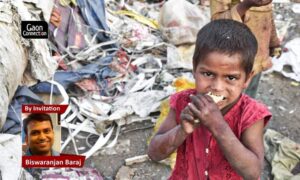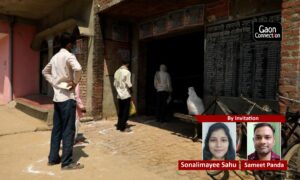The draft Trafficking in Persons (Prevention, Care and Rehabilitation) Bill, 2021 is indeed a significant development. The Bill proposes a common law to address all forms of human trafficking — sexual exploitation, forced labour, slavery and servitude, trafficking of human organs. It should help remove prejudice towards sex work as compared to other forms of human trafficking and arbitrary inconsistencies between different legislations applicable to different forms of trafficking.
However, there are a few important points where the Bill needs strengthening of rights of survivors of human trafficking to reintegration and community-based rehabilitation. The draft Bill also needs to strengthen the role of Anti Human Trafficking Units in different states for better law enforcement.
In the post pandemic reality, trafficking has increased tenfold. Especially in West Bengal, there have been several instances of underage children being sold into trafficking by their family members. These incidents are not uncommon as the lockdown induced by the pandemic has hit the lower economic groups of the society really hard. Therefore, human trafficking, often under the garb of job prospects, is rampant.
A trafficking survivor, upon returning home, still faces severe stigma from society. Through no fault of her own, she is shunned by the neighborhood and often even her family members. Trafficking survivors are kept in shelter homes, which alienates them further from society.
Apart from that, due to the lack of evidence, which is submitted to the court, the traffickers sometimes escape from the law. They often tend to re-traffic the victim. Moreover, the victims often find themselves unprotected from the constant threats of the traffickers, who try to dissuade them from lodging police complaints. The survivors often get no justice nor compensation from the court.
Also Read: 13-year-old girl, 38-year-old ‘bridegroom’ and a payment of Rs 100,000 for ‘marriage’
Stories of survivors
Bandhan Mukti, a survivors’ collective based out of South 24 Parganas, West Bengal, is a member of Indian Leadership Forum Against Trafficking (ILFAT). It has been documenting stories of trafficking survivors.
For instance, Rahelawas trafficked to Maharashtra when she was still a minor. She couldn’t complete her education. When she returned from the trafficking area, she began her studies again. But, the super cyclone Amphan last May wreaked havoc in her village and damaged her home. The living conditions became more severe with snakes and other creatures everywhere.
Rahela said she applied for compensation for the damage, as it is a fundamental right for every trafficking survivor. However, so far she has received no compensation or financial support.
Also Read: Child trafficking surges in Bihar as parents have no work nor wages in the COVID-19 pandemic
Unfortunately, the victims often face prejudice even within the legal framework designed to support them in their journey to achieve justice. It happened with Ruksana Khatun, from South 24 Parganas, West Bengal.
According to Ruksana, the lawyer told her he did not fight cases for ‘women like her’. Often, victims of human trafficking are seen as criminals.
It is evident that the agency of the survivors is often overlooked, and their rights get covered in the red tape. It is not uncommon that a victim, who was trafficked to another state, cannot appear for court proceedings because of the distance. Such problems are not taken into account.
New bill is more promising
The previous anti-trafficking bill failed to recognise the basic rights such as fast-trial and victim-compensation.
In that context, the new draft Trafficking in Persons (Prevention, Care and Rehabilitation) Bill, 2021 promises to address some of the problems. For example, it proposes a common law to address all forms of human trafficking.
However, some loopholes remain. Survivor collectives along with rights-based organisations are pointing out that the new bill has largely ignored the rehabilitative aspect of the trafficking survivor. The battle that begins after the victims return to society is perhaps the most important battle for them after they are rescued.
Tafteesh, a consortium of social workers, lawyers, researchers, sociologists, psychologists, media personnel and survivor leaders, works to ensure survivor-centric policymaking. Since 2016 Tafteesh has been actively engaged with the processes of development of the new anti-human trafficking Bill. The suggestions from several collectives raised through Tafteesh are considered in the newly formed draft.
Therefore, this draft of the Bill is intent on ensuring a comprehensive and robust law for curbing trafficking and ensuring appropriate provisions for survivors’ access to their rights. However, apart from the positive aspects of the Bill, several concerns still linger which are presented by Tafteesh in its letter to the ministry. For example:
- The legislation says nothing about gathering intelligence and identifying organised trafficking networks.
- The Bill should include responsibilities of the National Investigative Agency as it is a nodal agency that gathers intelligence from across the country.
- The Bill should define the role of AHTUs which have been mandated by the Ministry of Home Affairs and have budgets allocated for conducting the interstate investigation.
- The Bill should include a mandate for the respective governments to set up and maintain one or more AHTUs in every district of every state and layout their functions.
- There should also be a provision for community-based rehabilitation for supporting survivors of different forms of human trafficking for long term rehabilitation programs.
- The Bill should define community-based rehabilitation and reintegration that should include, safe housing and accommodation, access to mainstream services without prejudice and stigma, access to legal aid and protection services, access to AHTU and access to mainstream financial inclusion services such as Self-Help Groups, Bank Accounts and other welfare services that the govt may create.
Summing up, the drafting of the new bill is a positive step towards providing justice to survivors. However, the bill should become a primary pillar of agency, which will support the victims in every turn in their journey towards justice.
(All names and personal details of the victims are altered for maintaining the safety of the survivors)
Subhasree Raptan is an activist at Goranbose Gram Bikash Kendra and member of Tafteesh, who has been working with survivors of human trafficking. Raptan is also a mentor for BandhanMukti Survivor Leaders’ Council, a collective of survivors of human trafficking, which is also a member group of Indian Leadership Forum Against Trafficking (ILFAT).
Views are personal.


















